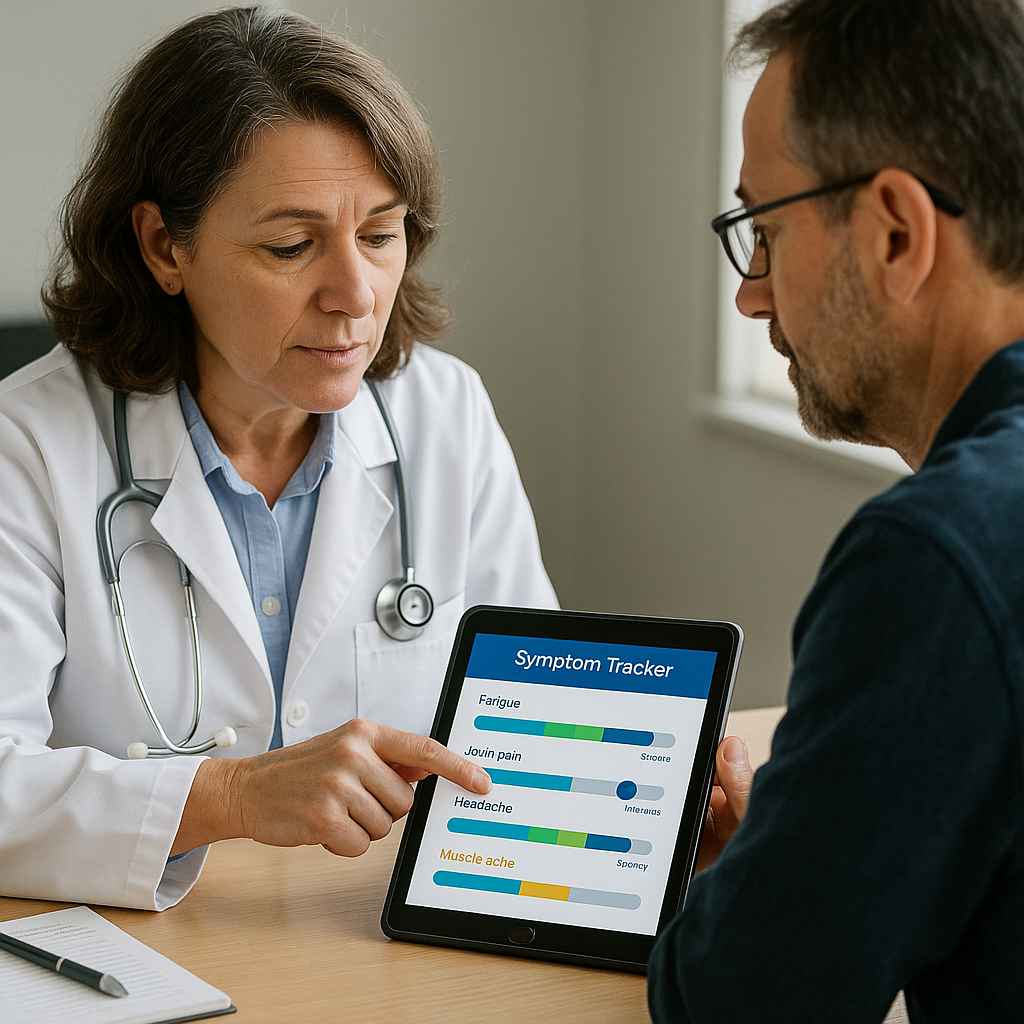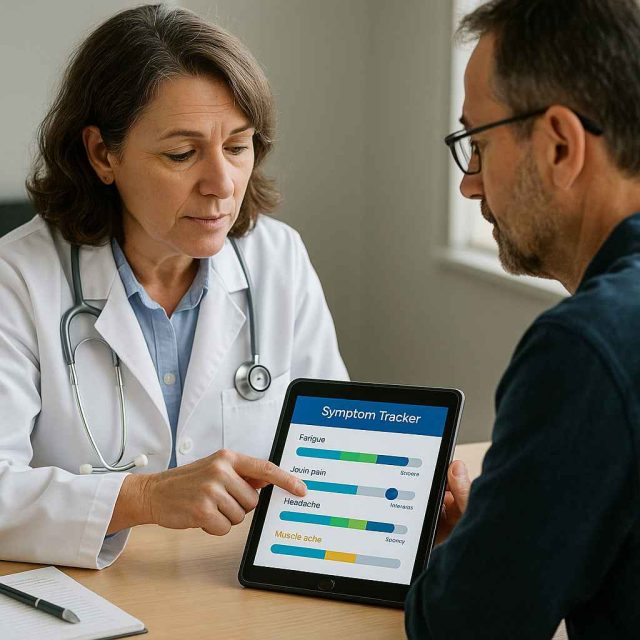
Living with chronic illness is often compared to running a marathon that never ends. You may not know when a flare-up will hit, how long it will last, or how it will affect your daily life. In 2025, however, the journey is being redefined through advances in technology, treatment, and holistic care. Whether managing rheumatoid arthritis, fibromyalgia, lupus, or Crohn’s disease, patients are discovering new ways to thrive, not just survive.
This article offers a detailed look at what’s new in chronic illness care, along with realistic strategies and emotional wellness tools that empower individuals day to day. If you’re navigating life with a chronic condition—or caring for someone who is—this is your guide to doing so with more clarity, compassion, and control.
Table of Contents
- Medical and Technological Breakthroughs in 2025
- Practical Daily Living Strategies
- Emotional Wellness and Mental Health
- Resources and Community Support
Medical and Technological Breakthroughs in 2025
Science and innovation have brought major strides in how chronic illnesses are treated and tracked. In 2025, biologics and gene-targeted therapies continue to evolve, offering personalized care for autoimmune diseases and inflammatory disorders. Medications like Taltz (ixekizumab), Stelara (ustekinumab), and Skyrizi (risankizumab) are now being used more precisely based on genetic profiles and disease activity.
Wearable tech and digital health apps are also changing the game. Devices can now monitor fatigue, inflammation markers, and mobility in real-time, giving doctors a clearer picture between office visits. Apps integrated with AI can flag flare-ups before they worsen by analyzing subtle changes in sleep, heart rate, and physical activity.
Additionally, the emergence of telemedicine and remote care tools has made chronic disease management more accessible. Patients living in rural or mobility-limited settings now have access to rheumatologists, gastroenterologists, and other specialists without long commutes or wait times.
If you’re exploring your options for personalized care or diagnostic tools, platforms like Healthcare.pro can connect you with providers offering up-to-date approaches.
Practical Daily Living Strategies
Living with chronic illness requires more than medication. It involves adapting your environment, routines, and expectations to better align with your body’s needs. Small, consistent changes can create a ripple effect of better health.
Nutrition plays a significant role in managing chronic symptoms. Anti-inflammatory diets rich in omega-3s, antioxidants, and whole foods have been linked to reduced pain and fatigue. While no single eating plan fits all, many patients find success with Mediterranean or low-FODMAP diets, tailored to their specific condition.
Equally important is pacing. Learning to balance activity and rest is key. Instead of “pushing through,” patients are encouraged to listen to their bodies and prioritize energy for high-impact tasks. The “spoon theory,” which helps explain energy budgeting, is still a useful model in 2025 for many living with chronic illness.
Mobility aids and assistive tech have also become more stylish and discreet. From smart braces that reduce joint stress to voice-activated home tools, adapting daily routines has never been easier. These tools can reduce strain and support independence.
For patient-tested tips and real-world strategies, Health.HealingWell.com offers a robust forum where people share their routines, setbacks, and successes.
Emotional Wellness and Mental Health
One of the most challenging aspects of living with chronic illness is the emotional toll. Grief, anxiety, and isolation are common but often under-addressed. Fortunately, 2025 brings renewed focus on mental health as part of whole-person care.
Therapeutic modalities like Cognitive Behavioral Therapy (CBT) and Acceptance and Commitment Therapy (ACT) are widely used to help patients navigate uncertainty and pain. Many mental health professionals now specialize in chronic illness and offer hybrid care—both online and in-person.
Additionally, mindfulness-based stress reduction (MBSR) and guided meditation apps have seen exponential growth. These tools help lower stress hormones, improve sleep, and increase pain tolerance. Research published in Frontiers in Psychology continues to show that regular mindfulness practice reduces symptom severity in conditions like lupus and multiple sclerosis.
Social support is equally vital. Patients who engage with peer communities report feeling less isolated and more empowered. Support groups, whether in person or virtual, provide a safe space to vent, validate experiences, and learn from others. Family and caregiver education is also expanding, helping loved ones better understand the invisible aspects of chronic illness.
Resources and Community Support
Living with chronic illness is easier when you’re not doing it alone. Fortunately, in 2025, community support is more accessible and inclusive than ever.
Online platforms like health.healingwell.com offer a wealth of resources. From symptom-tracking templates to webinars and discussion threads, these tools connect patients with real-time advice and encouragement.
Additionally, many hospitals now have integrated chronic care programs that include case managers, social workers, nutritionists, and mental health professionals. These teams work together to streamline appointments, prescriptions, and lifestyle coaching.
Insurance companies are also expanding coverage for holistic services, including acupuncture, physical therapy, and wellness coaching—acknowledging their role in comprehensive care.
And perhaps most promising of all is the shift toward patient-centered research. Advocacy organizations are increasingly including individuals with lived experience in study design and policy development. This ensures future treatments are not only effective but also relevant to the day-to-day lives of those who use them.
Conclusion
Living with chronic illness in 2025 means navigating a dynamic and often unpredictable path—but with more tools, support, and scientific understanding than ever before. Breakthroughs in biologics, digital health, and mental wellness have expanded the range of options available to manage symptoms and improve quality of life.
By blending evidence-based treatments with daily self-care and emotional support, individuals are better equipped to live well despite their diagnosis. Whether you’re just beginning your chronic illness journey or have been managing symptoms for years, know that you’re not alone—and that healing is both possible and personal.
For trusted patient resources, community support, and lived-experience stories, visit Health.HealingWell.com.
FAQs
What are the latest treatments for chronic illness in 2025?
Biologics like Skyrizi and targeted gene therapies are leading treatment advances, with personalized medicine gaining traction.
How can I manage fatigue from chronic illness?
Strategies include pacing activities, prioritizing rest, eating anti-inflammatory foods, and practicing mindfulness or light movement like yoga.
Are there apps that help with chronic illness management?
Yes. Several apps track symptoms, medications, and flares. Many also offer mental health support and reminders for daily routines.
How do I find emotional support for chronic illness?
Online communities such as Health.HealingWell.com and local support groups offer safe, relatable spaces for sharing and support.
Can chronic illness be cured or reversed?
Most chronic conditions can’t be cured, but many can be managed effectively with treatment, lifestyle changes, and emotional resilience.
Disclaimer:
This content is not medical advice. For any health issues, always consult a healthcare professional. In an emergency, call 911 or your local emergency services.




